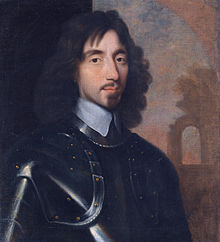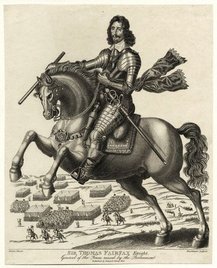Fairfax was a popular general, but could be ruthless, he approved the executions of Royalist leaders George Lisle and Charles Lucas and the following year he ordered the execution of mutineers. However, he was a man of action not a man of words, often finding himself out maneuvered in Parliament he sort to resign his post as Commander in Chief, but was persuaded not to, but he would eventually find himself overshadowed by Oliver Cromwell.
It must not be forgotten that Fairfax was instrumental in the defeat of the Royalist party, but he also played his part in the restoration of the monarchy, it was one of Fairfax's horses that England's new king, Charles II rode at his coronation.



 RSS Feed
RSS Feed
